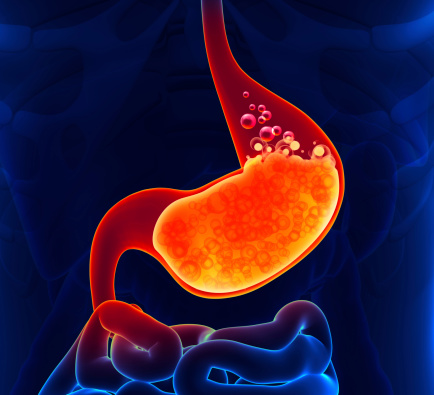Gastroesophageal reflux disease (GERD) or acid reflux disease is a common health problem in most parts of the world. The patient (himself/herself) starts treatment of acid reflux disease in most cases with the use of over-the-counter (OTC) medications, which are used for relief from heartburn or acidity.
If there is no relief or inadequate relief with the OTC acid-reducing medications or there is a recurrence, the doctor should be consulted. The treatment (it is mostly medical and in severe cases, it may be surgical) of acid reflux disease depends on the severity of the symptoms and damage acid reflux has caused to the esophagus.
Medical treatment of acid reflux disease includes medications that reduce acid production in the stomach, medications that neutralize stomach acid (antacids), and prokinetic drugs.
Medications that reduce/stop production of gastric acid:
This group includes proton pump inhibitors (such as omeprazole, lansoprazole, pantoprazole, rabeprazole, etc.), H2-blockers (such as ranitidine, famotidine, cimetidine, etc.). Proton pump inhibitors reduce (even stop) gastric hydrochloric acid production from the stomach and help in acid reflux disease. H2-blockers also reduce gastric hydrochloric acid production, however, H2-blockers are less effective in reducing gastric acid production in comparison to proton pump inhibitors and as a result less effective.
Medications that neutralize stomach acid (antacids):
Antacids are very useful medications for immediate relief of symptoms of acid reflux disease such as heartburn. Antacids are available over the counter and very commonly used by many patients (self-medication). Antacids work by increasing the pH of the stomach and reducing heartburn due to acid
Prokinetic drugs:
Prokinetic medications such as metoclopramide, domperidone, etc. strengthen the lower esophageal sphincter (LES, which is responsible for the prevention of backflow of gastric contents including acid from the stomach to esophagus) and also cause rapid emptying of the stomach, that is why known as gastric hurrying agents. By strengthening the lower esophageal sphincter and emptying the stomach contents fast prokinetic drugs reduce the risk of backflow and exposure of esophagus from acid.
Surgery in the treatment of GERD:
If medications are not helpful in GERD or certain conditions (such as anatomical abnormalities such as hiatal hernia or Barrett’s esophagus) surgery may be required. Some surgeries done for the management of GERD or acid reflux disease include:
1. Surgery to reinforce the lower esophageal sphincter (Nissen fundoplication)
2. Surgery to strengthen the lower esophageal sphincter
3. Surgery to create a barrier preventing the backup of stomach acid
4. A surgical procedure to form scar tissue in the esophagus (Stretta procedure)



Comments
Post a Comment